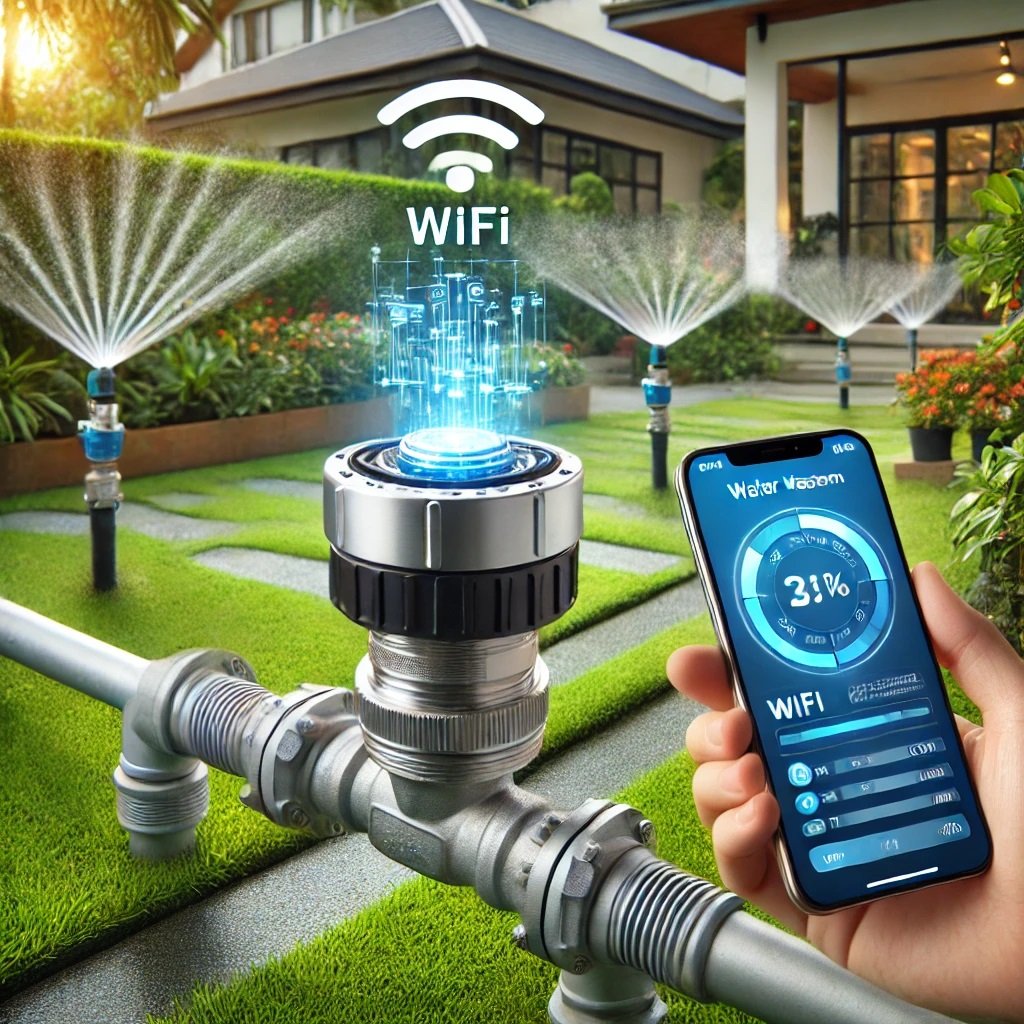
Introduction
Water management plays a crucial role in irrigation efficiency, and the use of a smart water valve WiFi system enhances automation, conservation, and precision. By integrating sensors, remote controls, and weather data, these systems optimize irrigation schedules while reducing water waste.
Key Features to Consider
| Feature | Description |
|---|---|
| Whole-Home Monitoring | Tracks water usage across the irrigation system, detecting abnormal flows and leaks. |
| Automatic Shut-Off | Turns off the water supply when irregularities are detected, preventing excess water usage. |
| Connectivity | Uses Wi-Fi, Z-Wave, or Zigbee for seamless integration with smart home systems. |
| Leak Detection Sensitivity | Identifies leaks, provides real-time alerts, and ensures efficient water flow. |
| Installation Complexity | May require professional installation or DIY setup based on the selected model. |

Best Smart Water Valve WiFi for Irrigation
1. Intelligent, Weather-Adaptive Watering
- Integration with Weather APIs ensures watering adjustments based on real-time data.
- Predictive Watering Algorithms analyze historical weather patterns to anticipate irrigation needs.
- Hyperlocal Weather Tracking allows for microclimate-specific irrigation schedules.
Example: If a heatwave is predicted, the system increases watering to prevent plant stress, reducing manual intervention.
2. Precision Soil Moisture Management and Conservation
- Advanced Sensor Networks measure soil moisture at multiple depths.
- Evapotranspiration Calculations ensure that plants receive just the right amount of water.
- Leak Detection Algorithms automatically shut off water supply upon abnormal flow detection.
Example: A smart water valve WiFi system detects that soil moisture is sufficient due to rainfall, preventing unnecessary watering.
3. Remote Control and Scheduling
- Mobile App Integration allows remote control of watering zones.
- Customizable Zones ensure different plant types receive appropriate watering.
- Alerts and Notifications inform users about low moisture levels, system malfunctions, or upcoming weather changes.
Example: A farmer in a different city can modify watering schedules via a mobile app based on live soil data.
4. Optimized Water Flow and Pressure Regulation
- Variable Frequency Drives (VFDs) optimize water pump operation for energy efficiency.
- Dynamic Pressure Adjustment modifies water pressure based on irrigation needs.
- Backflow Prevention Mechanisms safeguard against contamination.
Example: The system automatically adjusts water flow for a drip irrigation setup to avoid overwatering fragile plants.
5. Seamless Smart Home Integration
- IFTTT & API Support enable connectivity with multiple smart home devices.
- Voice-Controlled Assistance (Alexa, Google Assistant) allows hands-free operation.
- Integration with Smart Sensors ensures automatic adjustments based on temperature and light conditions.
Example: A homeowner instructs Alexa to start irrigation for a particular zone using voice commands.
6. Cost and Energy Savings
- Lower Water Bills due to optimized water usage.
- Reduced Labor Costs by eliminating manual intervention.
- Longer System Lifespan through controlled usage, preventing premature wear and tear.
Example: A vineyard reduces water expenses by 30% through precise, automated irrigation scheduling.

Best Smart Water Valve WiFi for Irrigation
Top Smart Water Valve WiFi Picks for Irrigation
| Model | Features | Best For |
|---|---|---|
| Flo by Moen–check price amazon | Monitors water pressure, flow rate, and temperature; auto shut-off | Whole-home monitoring |
| Phyn Plus–check price amazon | High-definition pressure wave analysis; leak detection | Precision tracking |
| Sedna – Sinopé–check price amazon | Expandable sensors; works during power outages | Large-scale irrigation |
Technical Considerations
| Factor | Details |
|---|---|
| WiFi Strength | Ensure stable connectivity for remote operation. |
| Data Security | Uses encrypted connections to prevent unauthorized access. |
| Scalability | Supports future expansions with additional sensors. |
| Durability | Weather-resistant components ensure longevity. |
| Power Supply | Some models offer solar-powered backup. |

Best Smart Water Valve WiFi for Irrigation
Conclusion
A smart water valve WiFi system revolutionizes irrigation by enabling efficient water distribution, leak prevention, and real-time monitoring. With advanced features like weather-adaptive watering, remote scheduling, and smart home integration, these systems promote sustainability while lowering costs. By selecting the right model, users can enhance their irrigation practices, improve plant health, and conserve water effectively.